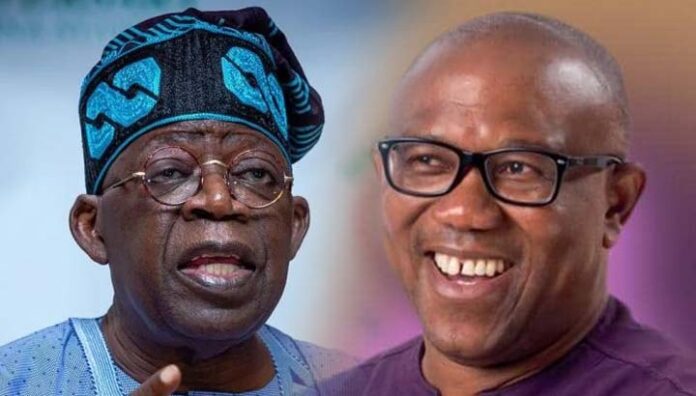Although the appeal filed by Peter Obi and the Labour Party to the Supreme Court against the Judgment of the Presidential Election Petition Court (PEPC) is based on fifty-one (51) grounds of appeal, the major complaints they raised against the Judgment are as follows; that:
The PEPC was wrong when it struck out the witness statements on oath of ten (10) out of the thirteen (13) witnesses called by the Petitioners on the ground that the statements were filed after the expiration of the period of twenty-one (21) days prescribed by the 1999 Constitution (as amended) for them to file the statements. They complain that the decisions of the Supreme Court and the Court of Appeal which the PEPC cited in support of the decision do not apply to the facts of this case. That the Court of Appeal, in coming to the above decision, refused to follow its previous decisions in many cases, which were cited and submitted to it, that a subpoenaed witness need not file his statement alongside the petition and any such statement filed after the time allowed for filing the Petition is competent and valid. (See Grounds 10, 11, 12, 13, and 14 of the Notice of Appeal).
The PEPC was also wrong when it struck out the witness statements on oath of the Petitioners’ witnesses (i.e. PW4, PW7, and PW8 who were Expert Witnesses) on the ground that they were persons interested in the outcome of the Petition. They failed to consider and appreciate the decisions of the Supreme Court to the effect that a person interested means “a person who has a pecuniary or other material interest in the result of the proceedings – a person whose interest is affected by the result of the proceedings, and therefore, would have a temptation to pervert the truth to serve his personal or private ends”. The PEPC failed to take into account that in this case, there is no evidence on record in the instant case that any of the Petitioners’ witnesses had any pecuniary or material interest in the result of the proceedings.
It is also their complaint here that by the decisions of the Supreme Court, a person interested does not mean “an interest in the sense of intellectual observation or an interest purely to the same party. It means an interest in the legal sense which imports something to be gained or lost”. That the interest of PW4, PW7, and PW8 in relation to the documentary evidence produced by them, on subpoena, was merely products of intellectual exercise. The PEPC ought not to have struck out their evidence on this ground. (See Ground 15 of the Notice of Appeal)
The PEPC was wrong when it decided that the electronic transmission of results with the Bimodal Voter Accreditation System (BVAS) from the polling units to the IReV is not mandatory under the provisions of the Electoral Act, 2022; and that INEC has a discretion whether or not to use BVAS to upload and transmit the results. In coming to this conclusion, the PEPC relied on the decision of the Federal High Court in Suit No: FHC/ABJ/CS/1454/2022 and refused and ignored the recent decision of the Supreme Court in OYETOLA v. INEC (2023) LPELR-60392 (SC) that the use of BVAs to scan and transmit the results of the election from the polling units to the IReV is “part of the election process” under the new legal regime governed by the Electoral Act, 2022. The PEPC also ignored the decision of the Supreme Court in OYETOLA’s case that “the Regulations provide for the BVAS to be used to scan the complete result in Form EC8A and transmit or upload the scanned copy of the polling unit result to the Collation System and INEC Result Viewing Portal (IReV)….”
It is their further complaint that contrary to the decision of the PEPC, the use of BVAS to transmit the election results to IReV under the presen…

